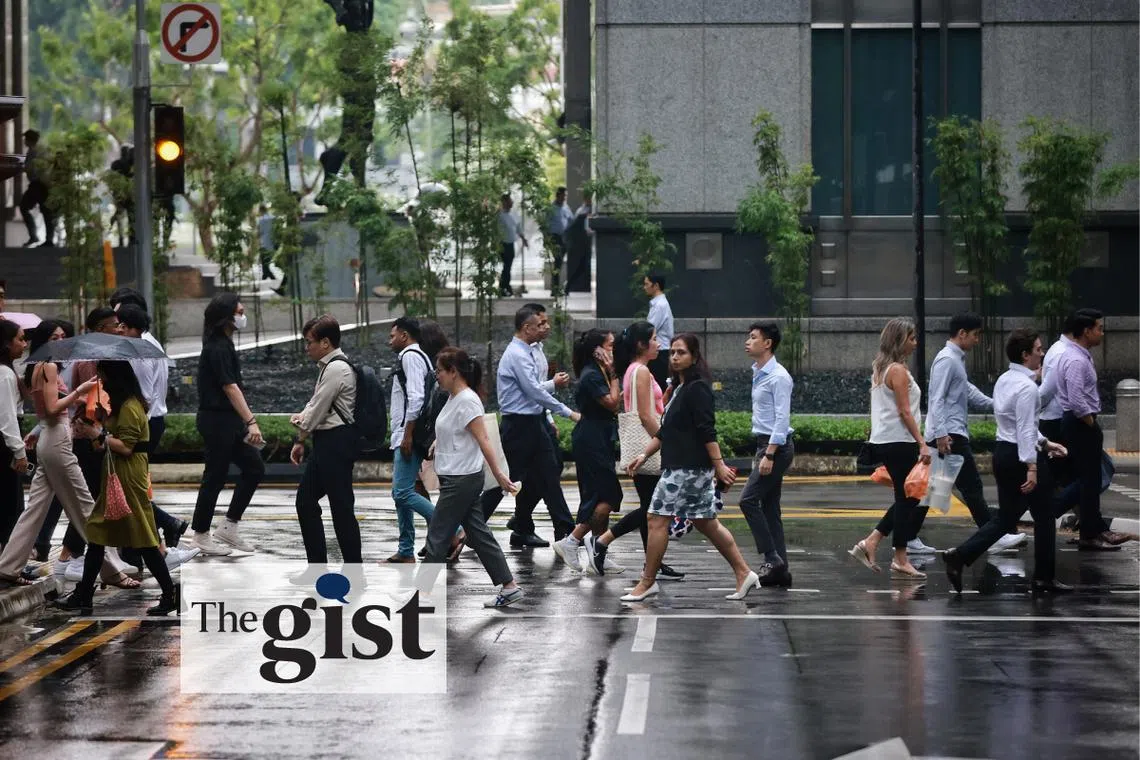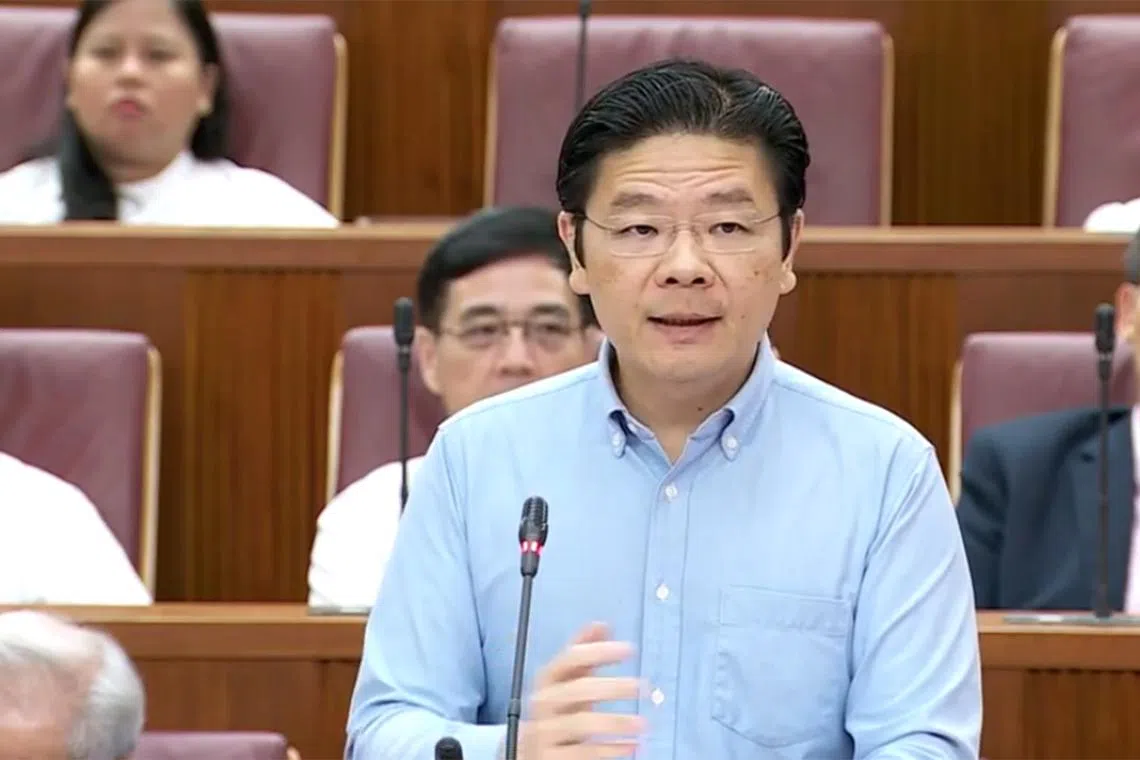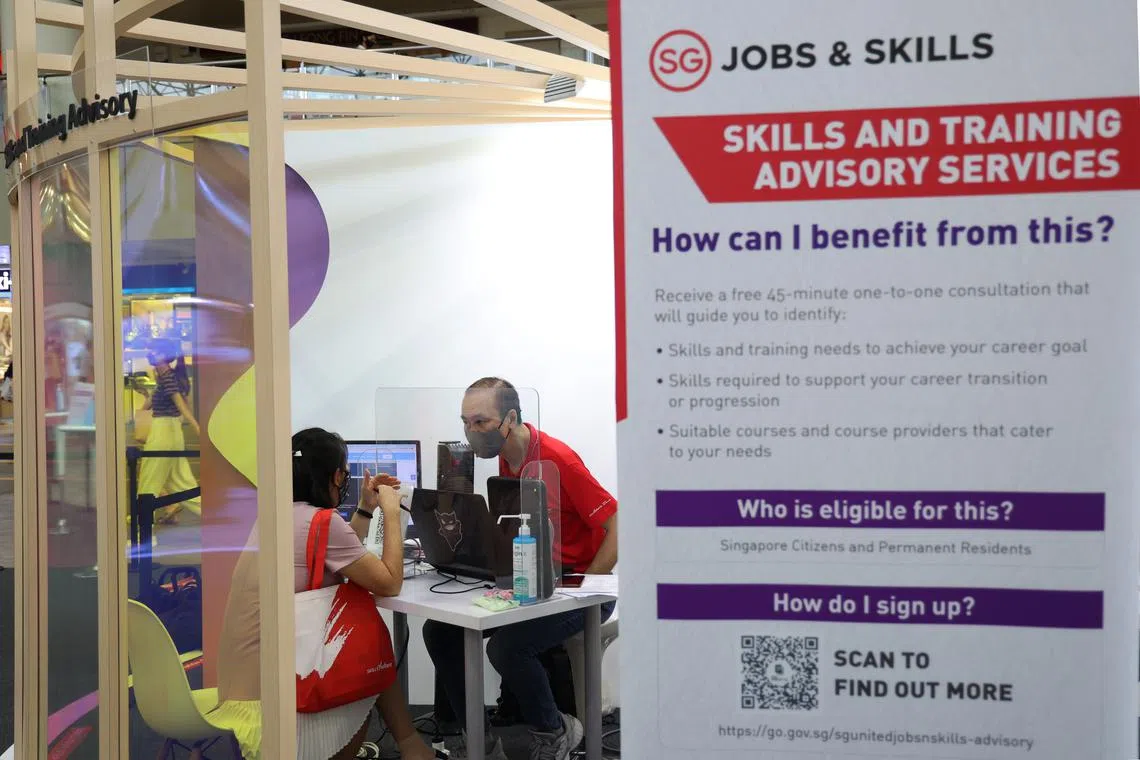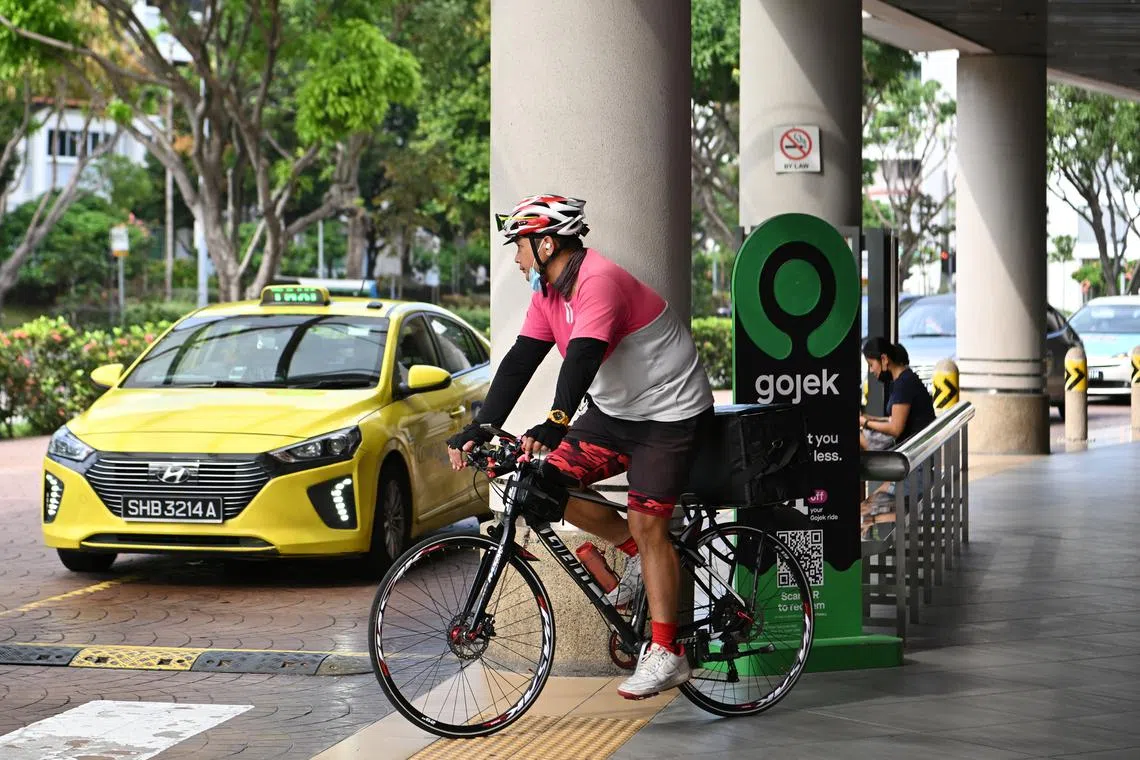The gist: New scheme for unemployed, and professionalising trades, debated in Parliament
Sign up now: Get ST's newsletters delivered to your inbox

A new re-employment scheme is being designed for those who have lost their jobs, to help them make ends meet.
ST PHOTO: JASON QUAH
Follow topic:
SINGAPORE - MPs on Monday debated the President’s Address for the opening of Parliament, plans under way to help the unemployed and strengthen lifelong learning,
Here are some key takeaways:
1. Scheme for displaced workers in the works

DPM Lawrence Wong said the scheme will give assurance to laid-off workers while avoiding the negative effects of simply giving out unemployment benefits.
PHOTO: GOV.SG
A new re-employment scheme is being designed for those who have lost their jobs to help them make ends meet, while encouraging them to gain new skills and look for jobs.
Mr Wong said the scheme will give assurance to laid-off workers while avoiding the negative effects of simply giving out unemployment benefits.
Why it matters
The move to design a scheme to lend a hand and not just a handout marks a shift in how the Government thinks about social strategy.
While it may be wise to avoid giving over-generous unemployment benefits that could dissuade unemployed people from wanting to be re-employed, it is equally important to give displaced workers support, so they can focus on finding a job without worrying about putting food on the table. This ensures that their lives are not destabilised just because of a rough patch.
2. Professionalise skilled trades

Skilled tradesmen like plumbers will be able to get accreditation for their skills, and have a clearer career progression ladder.
PHOTO: LIANHE ZAOBAO FILE
To narrow the wage gap across professions, skilled tradesmen like electricians and plumbers will be able to get accreditation for their skills, and have a clearer career progression ladder as they take on greater responsibilities.
Why it matters
Professionalising trades will bring workers not only more pay, but respect as well, by ascribing the right value to “hand and heart” roles such as blue-collar work and community service.
This is important as Singapore moves towards being a meritocracy in which there are many ways for people to contribute to and earn respect in society.
READ MORE HERE: NTUC to focus on uplifting careers of vulnerable workers, provide upskilling support
3. Major changes to strengthen SkillsFuture

The Government will work with industry partners on effective training programmes.
PHOTO: LIANHE ZAOBAO
Changes will be made to SkillsFuture to make courses more affordable, so more people will want to take them up. The Government will work with industry partners on effective training programmes, including options to learn on the job, and to ensure that courses have better scope so that people find them useful for their work.
There will also be discussions with tripartite partners on giving workers time off for training.
Why it matters
With slower economic growth, rapid technological disruptions and greater job churn, it has become even more important for workers to continuously pick up new skills so that they can become more adaptable and resilient.
This new approach to skills learning also means that how well people did in school will not determine their entire life, since they can always update their skill sets, move to new careers and seize new opportunities.
4. More support for vulnerable workers

NTUC will continue to work with the tripartite partners on matters such as providing work injury compensation to better protect freelance and self-employed workers.
ST PHOTO: LIM YAOHUI
To better protect freelance and self-employed workers, including platform workers, NTUC will continue to work with the tripartite partners on matters such as providing work injury compensation, and helping workers secure their housing and retirement needs.
The labour movement will also continue to advocate income support for those who lose their jobs.
Why it matters
Self-employed workers are in an especially precarious position should they lose their jobs and have families to provide for.
Mid-career workers are also more vulnerable to industry disruptions and restructuring.
If you have a few more minutes…
Through-train programme for students:
Schools should offer a through-train programme from Primary 1 to Secondary 4 so that students have 10 years to prepare for their first major exam, said Workers’ Party MP Gerald Giam (Aljunied GRC).
He said this will allow students to learn at a pace best suited for them and allow them to pursue their interests, instead of having them meet a specific test score in order to study the subjects they are interested in.
This 10-year programme will pair up existing primary and secondary schools and complement, but not replace, the non through-train tracks in these schools.
Further tax the rich:
To address wealth inequality, Mr Seah Kian Peng (Marine Parade GRC) proposed taxing specific expenditures such as supercars. He proposed a separate category of the certificate of entitlement for supercars that cost more than $1 million.
He added that this should also apply to good class bungalows and country club transfer fees.
He also urged the Government to consider releasing data on wealth distribution to facilitate public discussion.
Introduce inheritance tax:
Nominated MP Raj Joshua Thomas suggested that the Government consider introducing a limited inheritance tax in the form of a stamp duty or tax on inherited property. He said the tax can be based on a percentage of the value of the property, rising according to how expensive the property is, and proposed that the minimum could begin at a property valued at $5 million, with rates that go up to 25 per cent for Singapore citizens and 35 per cent for foreigners.
The tax regime should also be able to take into consideration the personal circumstances of beneficiaries and provide appropriate exemptions, such as for those with special needs or for HDB flats, he said.


